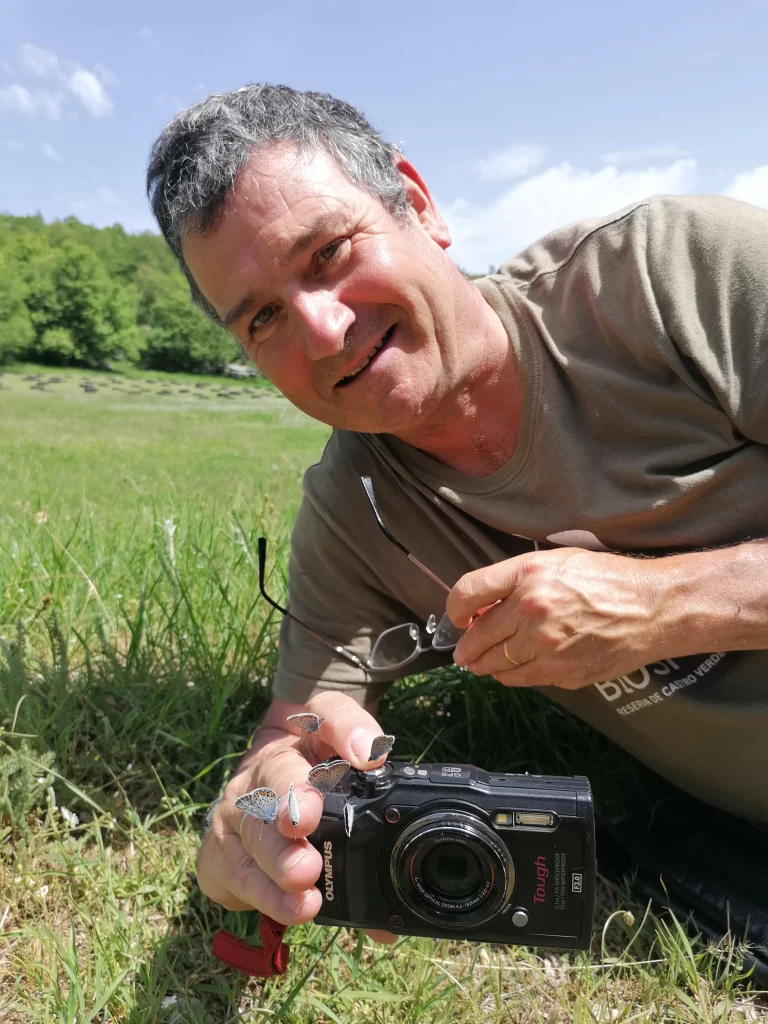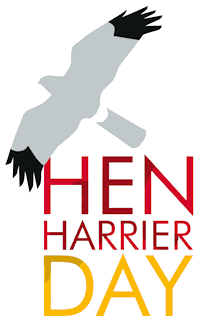Mark Cocker is an award-winning author, naturalist and writing tutor, with 13 acclaimed books to his name, including Birders: Tales of a Tribe, Birds Britannica, Our Place, Crow Country and his most recently published, One Midsummer’s Day: Swifts and the Story of Life on Earth.
Between them, his last four works have been shortlisted for nine awards.
He has been writing country diary columns for The Guardian and Guardian Weekly for 36 years with well over 1,000 published articles to his name. He will be speaking at Action for Wildlife Day at Carsington Water in August.
We caught up with Mark recently to find out more about his work.

HHA: Tell us a bit about your typical working week, Mark.
Last weekend I was running a nature walk and then I taught a one-day masterclass in nature writing. The previous day I had given a talk at a Lancaster conference. Yesterday I wrote a Country Diary column for The Guardian, and then in the afternoon I went to look at some incredible European cave spiders and did a recce of a walk for all the Country Diarists at a site near Hathersage. So my life is rich and varied. My wife often say that I’ve spent 25 years ‘frigging around’ (as I call it) and 15 years writing!
But normally I’d be sitting at this desk writing and researching topics most days. I work hard, starting at 9 o’clock and finishing about 5 or 6 o’clock. I have a routine, but writing is often about waiting for inspiration, so it’s different to other people’s days.
"Nature doesn't work at the level of the single organism"
HHA: Your last published book is One Midsummer’s Day: Swifts and the Story of Life on Earth. What prompted you to take this as subject matter for your latest book?
I’m obsessed with the concept of the connectedness of life. We are simply the inheritors of 4 billion years of living heritage. I always try to find ways to talk about the momentousness of life and nature, while at the same time talking about everyday events. The book is the best expression that I’ve achieved so far of that concept. The swift lends itself as a symbol that is very potent, and nobody fails to respond to swifts, so it became a great way to talk about the connectedness and unity of all life.
I think this matter of connection is a big part of what environmentalists have started to understand. We’ve suddenly woken up to the idea that nature doesn’t work at the level of the single organism and I think it’s very important that we have that as a central principle of environmentalism. That seems to be taking root amongst many of the rewilding projects that we’re seeing.
HHA: You’re working on a new book. Can you tell us about it?
It’s about the everyday nature of observation, and looking at the world with great scrutiny, so that you begin to see these connections. We think it’s a neutral act to look at the world, that it carries no great significance. But you can continue to look at the world in a way that sees nothing except what you want to see. In short, you see only what you have always seen. And that can be problematic. Birders are especially partial to observing nature but not seeing anything other than feathered species. We should try to perceive the full width of any scene and be more ambitious in our capacity to observe the wholeness of life.
And the book expands on this issue of observation and offers reflections about and how, when we look, we really recreate the world we see. It is also about what happens when you try to see the connections underpinning all life. I’m really excited about it. We’re now realising that being engaged with nature is so good for our mental health, our physical wellbeing, and is a source of enormous enrichment for us.
The working title is On Seeing: Nature, and I’m hoping it will be published next year.

HHA: You talk to a lot of groups around the country. Is that an important part of what you do?
I do enjoy it, and think that public speaking is important to get messages out. In the last 12 months I’ve done about 60 events from Inverness to Kent. And, of course, it’s a way of publicising your books, which is important for authors. My books are at the slightly more complicated end of natural history, looking at the philosophical, political and environmental consequences of nature. I don’t want to be seen as working in a particular silo, and I see this capacity to talk about connections as central to my work.
One of the most important questions I get asked about is ‘hope’. I often answer this with a quote from Irish Nobel Laureate poet Seamus Heaney:
“Hope is not just optimism – a wishing that things will turn out well but rooted in a conviction that there is good worth working for”.
You do it regardless of whether you are expecting success, you do it because there is work to be done. Many of my fellow speakers at Action for Wildlife Day have that same conviction. Ruth Tingay is a shining example of that philosophy, in the teeth of massive opposition.
There is another hope. You just have to go outside to feel the kind of stuff that comes out of nature, like my trip yesterday to see the European cave spiders, or seeing a Grey Wagtail working its way along a river, or looking at the orchids at Hartington Meadows, for example.
"Nature has become important to all of us. The penny has finally dropped."

HHA: You’ve been writing for The Guardian’s Country Diary for 36 years now. How do you constantly come up with the content?
I started in 1997, and I used to write several columns each month, but now it is mainly a fortnightly commitment. I’ve found it pretty straightforward to find topics, and of course I’m constantly having new experiences. So, my European cave spiders visit will probably be a topic; I was up at Malham Tarn recently looking at carnivorous plants. So I am always consciously thinking about what might be the next subject for a Diary column. There’s a new book coming out soon which is a compilation of all the diaries over the last 10 years. I also think the Guardian country diary as a column has acquired a certain importance, because nature has become important to all of us. The penny has finally dropped.
HHA: I know that you will be speaking at Action for Wildlife Day at Carsington Water. What will your message be for the people who attend?
There are so many forces arrayed against nature. Commentators have suggested that there are around 8 million people who care passionately about nature, but my own research suggests that, more realistically, there might be somewhere between 500,000 and 1.5 million. Many of us have multiple conservation charity memberships, so simply adding up the memberships doesn’t accurately reflect the community’s true size.
My own figure for nature activists means there are something like 68 million people who aren’t members of any associated organisation. Yet we still haven’t succeeded in creating a meaningful, dynamic and collaborative approach to these issues. We’re still obsessed by what Freud called the ‘the narcissism of small differences’.
“You’re a birder, I’m into insects. I’m not interested in insects, I’m into spiders.” We just can’t afford this complexity of separation – we need more than ever to collaborate, to work together. The Restore Nature Now rally was a great example of organisations and individuals coming together, but we need more. So, the aims of Action for Wildlife Day, bringing so many into one place, is music to my ears.
I will want to stress the importance of pulling all those disparate voices together at the event, and to celebrate that unity. We can’t afford to operate independently.
"We need a new kind of nature festival for our sector"
In our actions for nature I would say we have a broken toolkit. The National Parks were designed for people’s recreation, and we need to redefine what they are. Because the great deficit in our world is other species. There are 70 to 80 thousand other terrestrial organisms that have a right to be in these islands alongside us. Yet there are places in National Parks where the land is ‘farmed’ to the bone, where people are the main priority to the point where footpaths and by-ways have become routes for scrambler motorbikes and all-terrain vehicles. National Parks exemplify rights for us and none for the non-human parts of nature.
Another example of what I call the ‘broken toolkit’ is our designation Sites of Special Scientific Interest (SSSIs). Those places thus named may be important for science. But we’re not saving ‘science’. Science is our system of knowledge. What makes a place important is the presence of all those non-human lifeforms which have rights to persist and flourish. So let’s do what it says on the tin. Let’s call them Sites of Wildlife Abundance or something similar.
We need to redesign the toolkit. We need a language that is precise and aligned to the goals. I am going to talk a little bit about it.
I recently went to Groundswell, a big event for regenerative farming, run by farmers for farmers, in Hertfordshire, and I was blown away by it. It was quite heartening to be amongst people who really can make a difference and who are doing something powerful for the living world.
We need a new kind of nature festival for our sector, and I think Action for Wildlife Day is going to be great, as a microcosm of what might be a way forward.
Mark Cocker will be sharing his forthright views at Action for Wildlife Day at Carsington Water in Derbyshire, on Saturday the 10th of August. Come along and hear from an outstanding and inspirational line-up of speakers and performers, visit the stalls, stands and exhibitors, and take part in the family activities.
You can find out more about Mark Cocker, his work and his complete book list here.
Tagged Action for Wildlife Day
